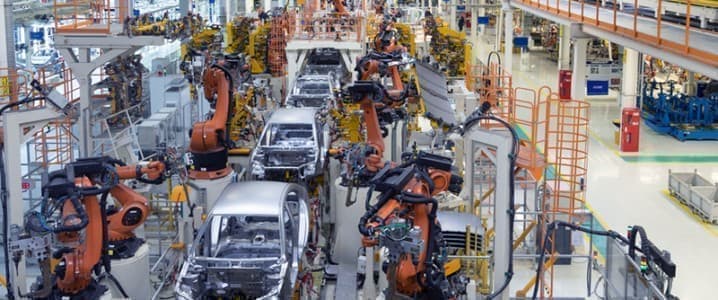Now Reading: China Schools the West on EVs
-
01
China Schools the West on EVs
China Schools the West on EVs

Irina Slav, a writer for Oilprice.com with extensive experience in the oil and gas industry, reported that Chinese electric vehicle (EV) manufacturers such as BYD are surpassing their Western counterparts in terms of both price and quality. Local EV makers in China now dominate over two-thirds of the market, causing foreign automakers to lose significant market share. The European Union is adopting China’s strategy of mandated knowledge sharing to gain access to Chinese EV expertise while imposing tariffs to protect local producers.
In a recent development, BYD achieved a milestone by outselling Tesla in Europe in April. This success was attributed to the superior quality and affordability of BYD’s EVs compared to Tesla, as well as consumer response to Elon Musk’s political activities. Western carmakers are now seeking to learn from Chinese companies like BYD on how to enhance the appeal and affordability of their electric vehicles for consumers.
Reports from Caixin Global highlighted that non-Chinese automakers are leveraging local expertise and supply chains to regain lost ground in the Chinese market, where local EV manufacturers have established dominance. European car companies are striving to catch up with their Chinese rivals who have advanced in technology and cost-effectiveness in the electric vehicle sector.
The European Union’s response to the growing competition from Chinese manufacturers includes imposing import tariffs on Chinese EVs and seeking access to Chinese EV know-how. Chinese EVs have proven to be both superior and more cost-effective than their European and American counterparts, posing a challenge for Western carmakers.
Over the past five years, non-Chinese automakers have lost a significant portion of their market share in China to local manufacturers, with Chinese EV makers leading the market. The EU’s decision to adopt China’s approach of knowledge sharing aims to bridge the gap in technological advancements between Chinese and European car companies.
While China’s aggressive approach to promoting EVs through subsidies and incentives has facilitated the growth of its EV market, European carmakers have struggled to lower costs and increase sales due to the high prices of electric vehicles. The EU’s reliance on subsidies for local EV production contrasts with China’s transition from niche to mainstream EV market without subsidies.
However, concerns remain about the sustainability of the rapid growth in the Chinese EV sector, as demonstrated by the recent bankruptcy of a large BYD dealer in Eastern China. Both Chinese and European carmakers may benefit from collaboration, with Chinese expertise complementing European demand for advanced EV technology.
Irina Slav’s insights on the evolving dynamics of the global EV market shed light on the competitive landscape and the strategic responses of key players in the industry.





